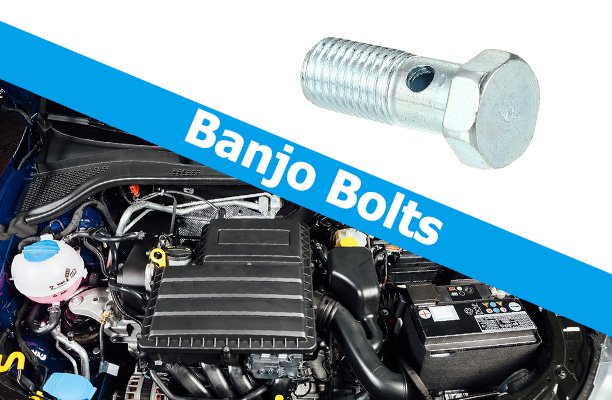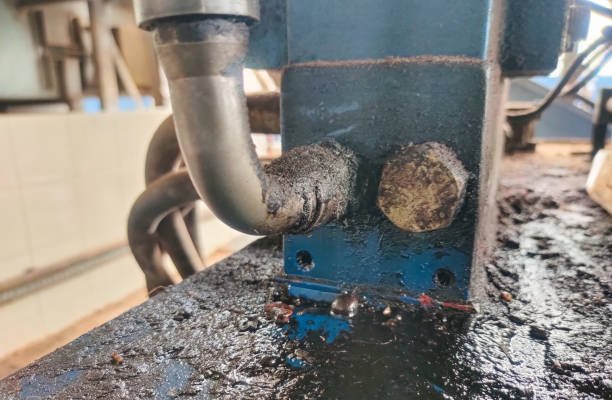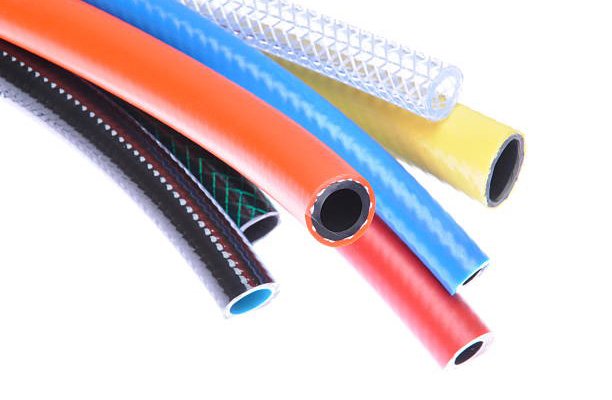When we think about the complex machinery that powers our vehicles, the mind often jumps to engines, transmissions, or even the more visually prominent parts like wheels and tires. However, there’s an unassuming, yet critical component that plays a vital role in the efficient operation of your vehicle’s hydraulic systems, particularly in braking systems – the banjo bolt. Despite its small size, this component is indispensable for ensuring the safe and efficient transfer of fluids, making it a vital piece of automotive and mechanical engineering.
What is a Banjo Bolt?
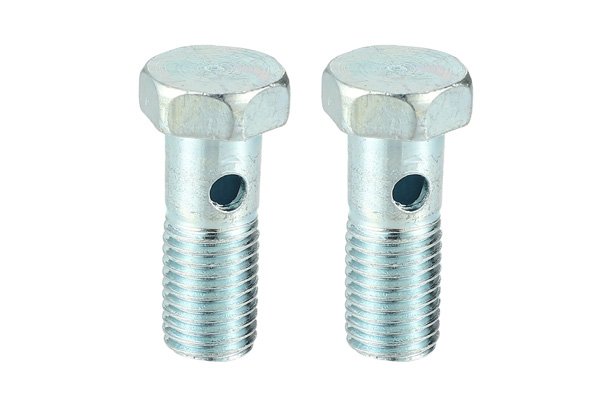
At its core, the banjo bolt is a specialized fastener used in hydraulic systems, primarily in automotive braking and fuel systems. It’s a small, hollow bolt that allows fluid to pass through it and into or out of a connected hose. The design of the banjo bolt is unique because it not only secures two components together but also permits fluid flow through its hollow body.
How Does a Banjo Bolt Work?
Imagine the banjo bolt as a bridge, one that not only connects but also allows movement – in this case, the movement of fluids. The bolt features a hole through its center and across its side, creating a pathway for the fluid. It typically works in tandem with a banjo fitting, which is a donut – shaped connector, hence the term “banjo.” The bolt goes through the center of the fitting, and as you tighten the bolt, it seals the fitting against a surface, usually with the help of crush washers to ensure a leak-proof connection.
This combination allows the hydraulic fluid to travel through the banjo fitting and into the connected hose or brake line, facilitating the transfer of pressure needed to engage the brake calipers. When you press your brake pedal, the fluid moves through this system, creating the pressure that clamps your brake pads onto the rotors, slowing down or stopping your vehicle.
Types of Banjo Bolts
While the basic function of a banjo bolt remains consistent across different applications, various types are designed to cater to specific needs based on material, design, and application. Here’s an overview of the different types you might encounter:
Material-Based Types of Banjo Bolts
The material from which a banjo bolt is made can greatly influence its strength, durability, corrosion resistance, and weight:
- Steel: These are the most common and affordable, known for their strength and durability. They are ideal for standard automotive and industrial applications but may require protective coatings to prevent corrosion.
- Stainless Steel: Highly resistant to corrosion, these are perfect for environments where exposure to moisture or chemicals is common, such as marine or high-performance automotive applications.
- Aluminum: Lightweight and ideal for performance applications where reducing weight is a priority. However, they are less strong than steel and stainless steel, making them suitable for low-stress environments.
- Titanium: Offering a combination of light weight, strength, and corrosion resistance, titanium banjo bolts are used in high-performance and aerospace applications, albeit at a higher cost.
Application-Based Types of Banjo Bolts
Different systems require banjo bolts with specific features tailored to the system’s needs:
- Brake Banjo Bolts: Specifically designed for hydraulic braking systems, these bolts must withstand high pressures and temperatures. They typically come with crush washers to ensure a leak-proof connection and are available in materials like stainless steel for added durability.
- Fuel System Banjo Bolts: Used in automotive fuel systems to connect lines to injectors, pumps, or carburetors. These bolts are resistant to corrosion and fuel degradation, with stainless steel and aluminum being common materials.
- Power Steering Banjo Bolts: Found in power steering systems, these bolts handle the high-pressure demands of hydraulic steering fluids. They are similar to brake banjo bolts but optimized for steering fluid.
Design-Based Types of Banjo Bolts
- Single Banjo Bolt: The most common type, featuring a single hole through the side for fluid passage. This design is standard for most hydraulic systems like brakes and fuel lines.
- Double Banjo Bolt: Designed to connect two banjo fittings at a single connection point, useful for systems where two fluid lines need to join one port, such as dual brake lines to a master cylinder.
- Vented Banjo Bolt: Equipped with an additional passage or vent to allow air to escape from the system, ensuring consistent hydraulic pressure. This type is particularly useful in brake systems.
- Custom-Thread Banjo Bolt: Manufactured with specific threading to meet unique system requirements, such as non-standard thread sizes for high-performance vehicles.
Why Are Banjo Bolts Important?
Though they seems simple, it’s crucial for systems needing precise fluid movement. The most common use is in brake systems. In this context, they ensure that the brake fluid reaches the calipers without any leaks, maintaining the integrity of the braking system.
In braking systems, reliability is non-negotiable. A faulty or leaking banjo bolt can cause hydraulic pressure loss, leading to brake failure—a dangerous situation for any driver. Therefore, the quality and condition of these bolts are directly linked to the overall safety of the vehicle.
Material and Design Considerations
Manufacturers typically make banjo bolts from materials like steel or stainless steel for their strength, durability, and corrosion resistance. In high-performance vehicles, they might use aluminum or even titanium to reduce weight.
The design of a banjo bolt is also critical. The diameter of the bolt, the size of the holes, and the thread pattern all play a role in how effectively the bolt performs its job. Precision is key because any deviation in these factors can lead to improper fluid flow or even failure of the connection.
Applications Beyond Braking Systems
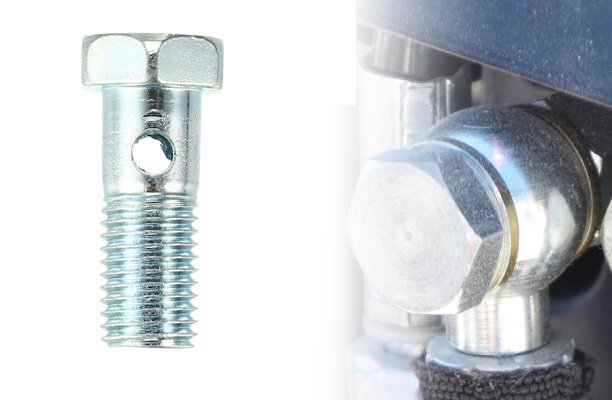
Although most commonly associated with brake systems, banjo bolts have a variety of applications. Fuel systems use them to connect fuel lines to injectors or carburetors, ensuring efficient fuel delivery without leaks. They are also used in power steering systems and turbochargers to manage fluid flow, essential for system function.
In hydraulic machinery and industrial applications, it transfer pressurized fluid between components. Their ability to provide a secure yet flexible connection makes them invaluable in these settings.
Installation and Maintenance Tips
Installing it seems straightforward, but it’s important to follow a few steps for a secure, leak-free connection. Here are some tips to help you:
- Always Use New Crush Washers: Crush washers, usually made of copper or aluminum, are designed to create a tight seal when the banjo bolt is tightened. Reusing old washers can lead to leaks, so always use new ones during installation.
- Torque to Specification: Banjo bolts should be tightened to the manufacturer’s specified torque setting. Over-tightening can damage the bolt or the components it connects, while under-tightening can lead to leaks.
- Check for Leaks: After installation, always check for leaks by applying pressure to the system and observing the connection point. If you notice any fluid seeping, the bolt may need to be re-tightened or the washers replaced.
- Regular Inspections: During routine maintenance, inspect the banjo bolts for signs of wear, corrosion, or leaks. Early detection of any issues can prevent more significant problems down the line.
Common Issues with Banjo Bolts and How to Fix Them
- Leaking Banjo Bolts: The most common issue is leaking, which can occur if the bolt is not torqued correctly or if the crush washers are worn out. The solution is to replace the crush washers and re-tighten the bolt to the correct specification.
- Stripped Threads: Over-tightening a banjo bolt can strip the threads, making it difficult or impossible to secure the bolt properly. If this happens, the bolt and potentially the fitting will need to be replaced.
- Corrosion: Especially in vehicles exposed to road salt or harsh environments, they can corrode over time. Regular inspection and replacement with bolts made from corrosion-resistant materials like stainless steel can prevent this issue.
Upgrading and Customizing Banjo Bolts
For those interested in performance upgrades or custom modifications, banjo bolts offer opportunities to enhance both the function and appearance of their vehicle. Performance-oriented drivers may opt for lightweight aluminum or titanium banjo bolts to reduce weight, especially in racing applications where every gram counts.
Customizing the look of it is also popular among automotive enthusiasts. Anodized aluminum bolts, available in various colors, can add a touch of personalization to a vehicle’s engine bay or brake system. While these upgrades may seem purely aesthetic, they still need to meet the same functional requirements as standard bolts.
The Role of Banjo Bolts in Brake System Efficiency
One of the lesser-discussed aspects of banjo bolts is how they contribute to the overall efficiency of the brake system. The smooth and unrestricted flow of brake fluid is crucial for responsive braking. A well-designed and properly installed banjo bolt ensures minimal resistance in the fluid flow, allowing the braking system to respond immediately when you press the pedal.
In high-performance applications, where precision and responsiveness are critical, even small improvements in fluid dynamics can make a noticeable difference. This is why performance vehicles prefer high-quality banjo bolts, often with polished interiors and precision-machined holes.
Choosing the Right Banjo Bolt for Your Needs
Selecting the right one depends on several factors, including the specific application, the material, and the size of the bolt. Here’s a brief guide to help you choose the correct one:
- Material: For most standard automotive applications, steel or stainless steel banjo bolts are sufficient. For high-performance or corrosive environments, aluminum or titanium bolts might be a better choice.
- Size: Banjo bolts come in various sizes, measured by the diameter of the bolt and the size of the thread. Make sure to match the size of the bolt to the fitting and hose you are using.
- Thread Pitch: The thread pitch of the banjo bolt needs to match the receiving component. Common thread pitches include metric sizes like M10x1.0 or imperial sizes like 3/8”-24.
- Compatibility: Ensure that the banjo bolt is compatible with the fluid being used, especially in fuel systems where certain materials may react with the fuel.
Conclusion
The banjo bolt may not be the most glamorous component in your vehicle, but its importance cannot be overstated. As a critical part of your vehicle’s hydraulic system, particularly in the brakes, it ensures the safe and efficient transfer of fluids. Whether you’re performing routine maintenance, troubleshooting a leak, or considering an upgrade, understanding the function and importance of it will help keep your vehicle running safely and efficiently.
For those interested in taking their vehicle’s performance to the next level, exploring the world of performance banjo bolts can offer both functional and aesthetic benefits. Remember, in the world of automotive engineering, even the smallest components play a significant role.
FAQs
What is a banjo bolt used for?
A banjo bolt is used in hydraulic systems, most commonly in automotive brake and fuel systems, to connect hoses to components while allowing fluid to pass through its hollow body.
Can I reuse crush washers with a banjo bolt?
Experts generally do not recommend reusing crush washers. They design these washers to deform when tightened, creating a seal, and reusing them may not provide a leak-proof connection.
What materials are banjo bolts made from?
Manufacturers typically make banjo bolts from steel, stainless steel, aluminum, or titanium, depending on the application and the desired balance between strength, weight, and corrosion resistance.
How do I know if my banjo bolt is leaking?
You can detect a leaking banjo bolt by inspecting the connection point for any signs of fluid. Wetness around the bolt or a drop in hydraulic pressure in the system might indicate a leak.
Can I upgrade my banjo bolts?
Yes, upgrading to performance or custom banjo bolts is possible, especially for those looking to reduce weight or add a personalized touch to their vehicle’s appearance.
What torque should I use when installing a banjo bolt?
The torque specification for a banjo bolt varies by vehicle and application. Always refer to the manufacturer’s guidelines for the correct torque setting to ensure a secure and leak-free connection.

